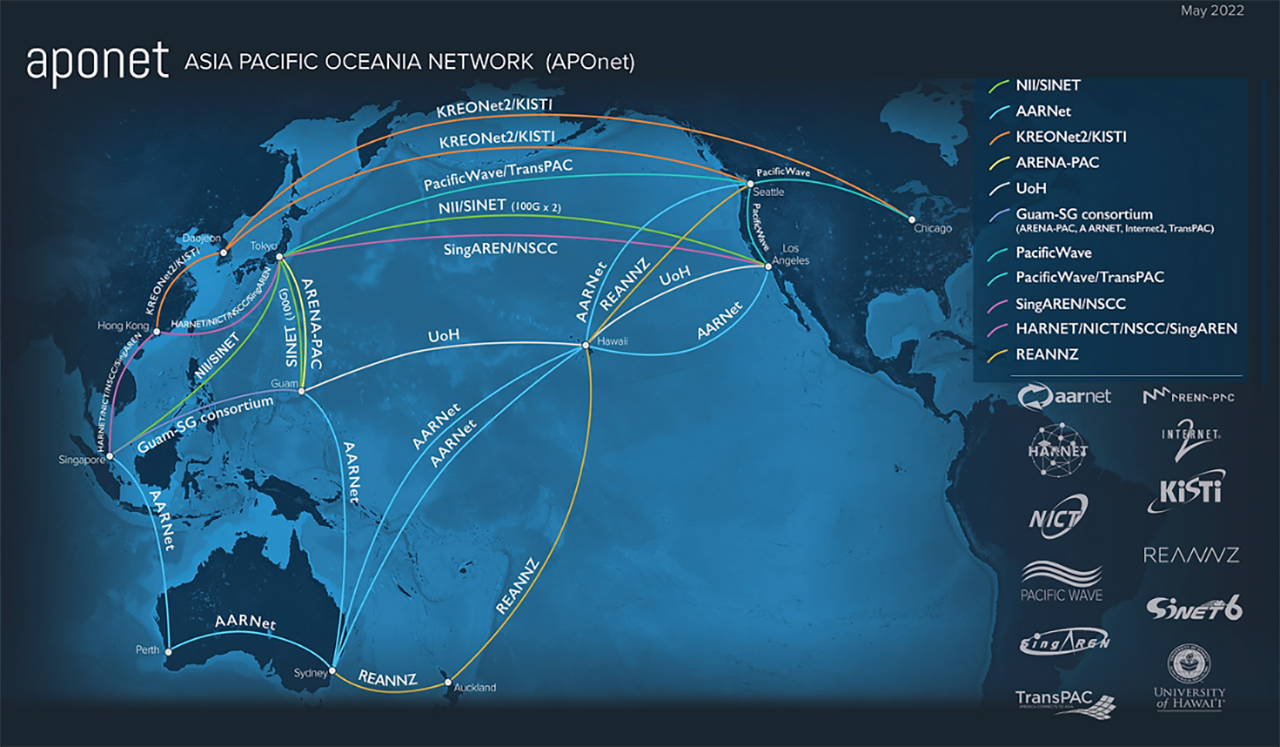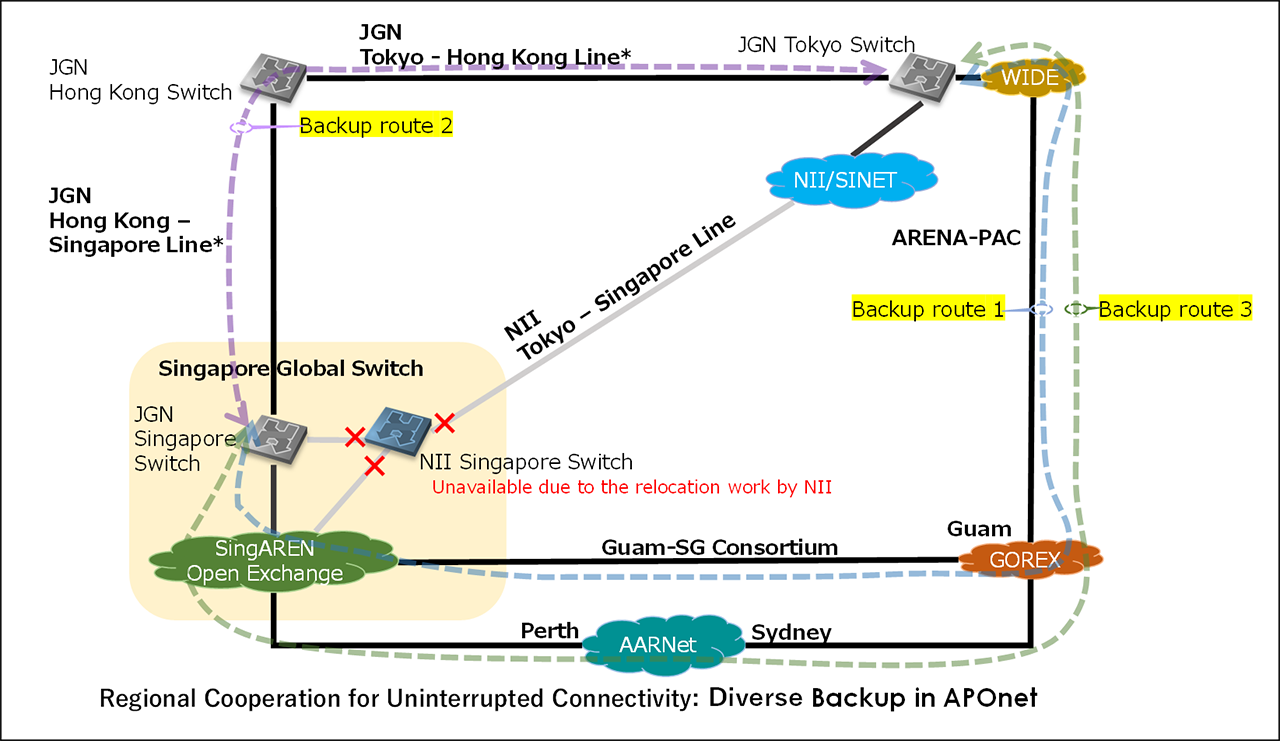Regional Cooperation Ensures Uninterrupted Connectivity

When the JGN Tokyo-Hong Kong-Singapore line *1 , operated by the National Institute of Information and Communications Technology (NICT), a Japanese National Research and Development Network, was scheduled to provide backup for the suspension of the Japanese academic backbone network, Science Information Network (SINET), for two months, the importance of regional cooperation exemplified by the APOnet framework really came to light.
APOnet is a consortium of twelve leading-edge research and education networks in North America, East Asia, Southeast Asia, and Oceania, working together to improve high-speed network services in the Asia Pacific Oceania region.
Planning ahead
The initial plan was for the JGN Tokyo-Hong Kong-Singapore line to provide backup for two months in December 2021 while equipment was being relocated on SINET. The SINET provides service to more than 900 universities and research institutions supporting international research collaboration through international lines.
It is used by over 3 million users in Japan. SINET is operated by the National Institute of Informatics (NII), Japan's only general academic research institution seeking to advance integrated research and development activities in information-related fields, including networking, software, and content. NICT and NII are members of the APOnet framework.
But no matter how much planning you do ahead, there are always unexpected contingencies. That’s where backup path diversity and intelligent network design come into play. And a little help from your friends!
After the JGN backup was set into motion, there was scheduled maintenance on the JGN line that could not be postponed. So the backup was transferred to the line via Guam, operated by the Arterial Research and Educational Network (ARENA-PAC) another APOnet member, and the Guam-SG Consortium, which includes APOnet members (Backup route 1). In the end the scheduled work on the JGN line was completed early, so the backup returned to the JGN line (Backup route 2).
Subsequently, additional work had to be carried out on the JGN line. Since the line via Guam was disconnected at that time, the Guam-Australia line operated by ARENA-PAC and AARNet, both APOnet members, took over (Backup route 3). After the two-hour work on the JGN line was completed, backup duties returned to the JGN line (Backup route 2).

Diversity for unmatched performance and reliability
The APOnet framework places high priority on supporting of highly available connections of multiple networks. Providing multiple network paths increases routing flexibility and data transfer reliability. It is this diversity in design and network agility that ensures continuous service between partners and in the region. This backup plan and execution are an excellent model of how NICT and APOnet are delivering on the promise of uninterrupted and uncompromising R&E networking connectivity, performance and reliability.
| *1 JGN Tokyo-Hong Kong-Singapore line: | JGN is operated by NICT, Japan’s sole National Research and Development Agency specializing in the field of information and communications technology. JGN Tokyo-Hong Kong-Singapore line has been procured by NICT, Singapore Advenced Research and Education Network (SingAREN), National Supercomputing Centre (NSCC) Singapore and Joint Universities Computer Center (JUCC). |


